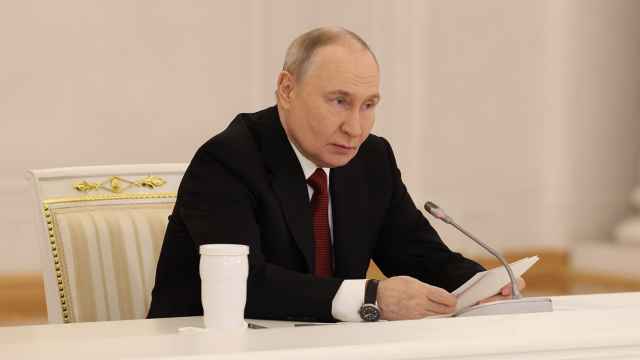Spanish retailer Mango, riding on the confidence of a swelling middle class, plans to double the number of stores in Russia over the next three years, a store executive said in an interview.
"Russia is a huge country and has a very fashion-oriented market," Aniko Kostyal, appointed by Mango to focus exclusively on expansion in Russia, told Reuters last week.
Within the BRIC group of large emerging nations, Russia follows China in terms of growth, Kostyal said, with Brazil and India lagging behind.
One of the best-known Spanish labels abroad after Inditex-owned rival Zara, privately owned Mango opened offices in Russia and China this year to focus on its key foreign markets.
Like its listed rival, Mango has expanded outside its home market where a sharp economic slowdown has left one in five Spaniards unemployed.
Its bold prints and rich fabrics appeal to Russians, who have become enthusiastic buyers and passionate about fashion since the fall of Communism 20 years ago.
Last year Russian sales accounted for 5 percent of global turnover, totaling 80 million euros ($114.4 million).
Though China will get more new shops than Russia over the next three years, Russia outperforms its eastern neighbor in sales, Kostyal said.
She added that Mango is banking on Russia's growing middle class for expansion, where domestic demand is a main driver in a $1.5 trillion economy dependent on oil and gas revenues.
With soaring energy and commodities prices, Russia — the world's top energy producer — is recovering after the devastating 2008-09 crisis.
According to a recent forecast by the International Monetary Fund, Russia's economy will more than double to $3.2 trillion by the end of 2016, or the fifth-largest economy after the United States, China, Japan and Germany.
While a decade ago Mango targeted Russian cities with a population of half a million or more, now they are aiming for towns with populations of only 150,000, Kostyal said.
"This shows the rhythm of how the middle class is slowly growing. We are going to cities with smaller and smaller populations," she said.
Though China's gross domestic product exceeds Russia, Russian individuals have double the amount of wealth compared with the Chinese, according to Goldman Sachs research last month.
In GDP terms, Russia is expected to outpace Canada this year, moving up a notch into 10th place, the research predicts.
Mango is aiming to open 300 stores a year worldwide, with 30 of them in Russia, from the affluent European part of the country to Sakhalin Island in the Pacific Ocean.
The middle class across the BRIC countries has surged by hundreds of millions of people during the last decade and is predicted by Goldman Sachs to keep rising in coming years.
Kostyal said Mango will launch a new boutique, "Mango Touch," in Moscow in 2011, cashing in on the demand for accessories. It will also be introduced in Barcelona this year.
She added that though expansion in ex-Soviet countries slowed during the crisis, the retailer will soon try set up shop in Tajikistan and Turkmenistan, the only countries in the region that are Mango-free.
A Message from The Moscow Times:
Dear readers,
We are facing unprecedented challenges. Russia's Prosecutor General's Office has designated The Moscow Times as an "undesirable" organization, criminalizing our work and putting our staff at risk of prosecution. This follows our earlier unjust labeling as a "foreign agent."
These actions are direct attempts to silence independent journalism in Russia. The authorities claim our work "discredits the decisions of the Russian leadership." We see things differently: we strive to provide accurate, unbiased reporting on Russia.
We, the journalists of The Moscow Times, refuse to be silenced. But to continue our work, we need your help.
Your support, no matter how small, makes a world of difference. If you can, please support us monthly starting from just $2. It's quick to set up, and every contribution makes a significant impact.
By supporting The Moscow Times, you're defending open, independent journalism in the face of repression. Thank you for standing with us.
Remind me later.





